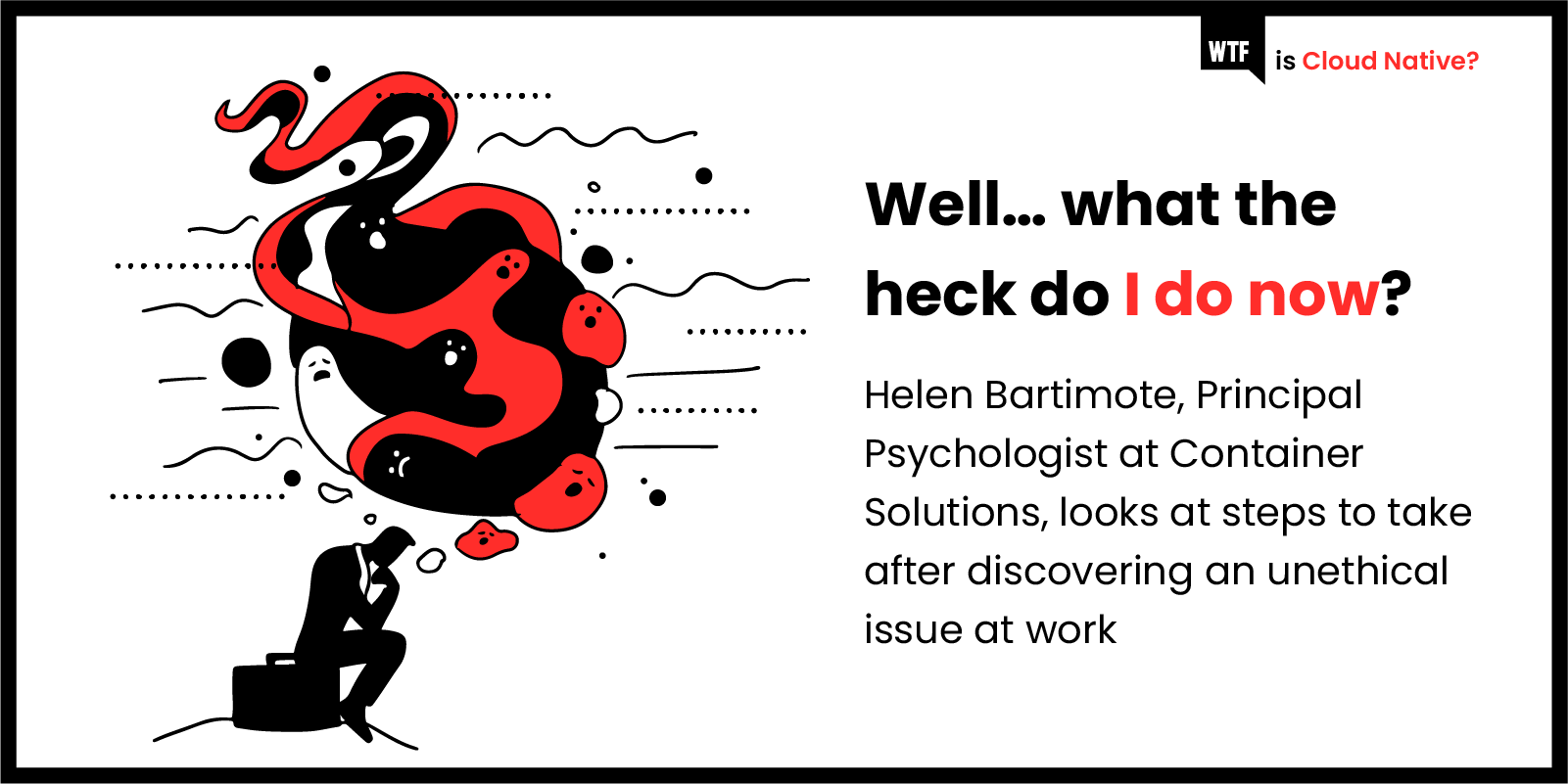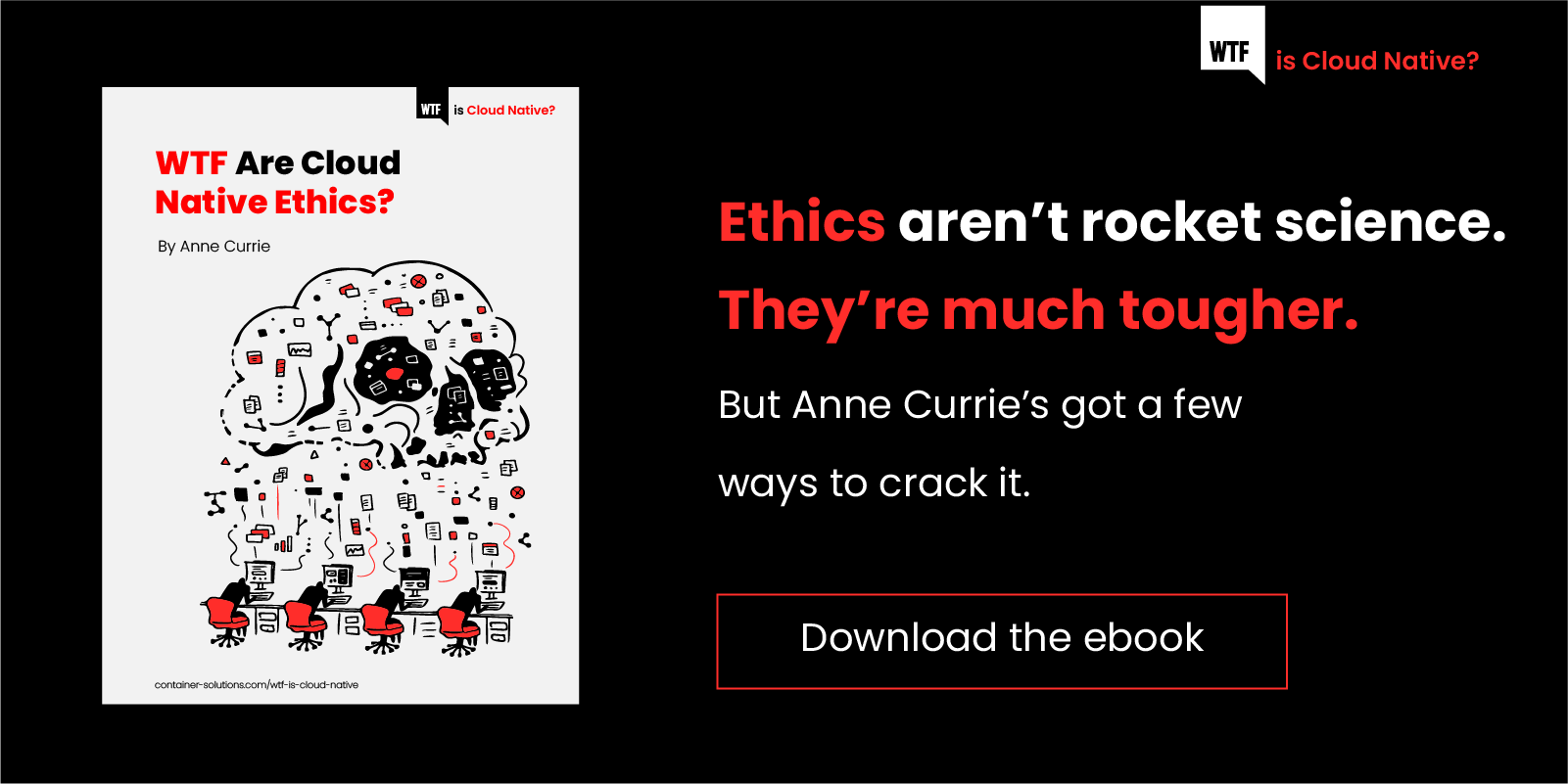Jack was delighted when he landed his ‘dream job’ for a large software company. It enabled him to work flexibly around the demands of his young family, with great colleagues, excellent progression and fantastic salary. Jack was even more thrilled when over two years ago he was asked to lead work on his company's biggest client, a global car manufacturer. He now spent most of his time with this organisation, specifically working with the engineering team responsible for laboratory emission testing.
As part of this new responsibility, Jack worked directly with Noah, one of the senior plant managers. Over time, they became personal friends, often going for a drink after work. They had also started to complete half-marathons together. Noah lived alone and Jack often invited him over for family meals at his house. On one occasion, Noah confided in Jack that he had found out something about his employer that troubled him, but did not say anything more.
In the last month, Jack had not seen Noah in work or at their running club, which was unusual. Every time he called or messaged, Noah just said he was feeling ‘burnt out’ and would be back soon. After not getting much more information from Noah’s manager and HR, Jack decided to go to Noah’s apartment to check on him directly. Finally and after much encouragement and reassurance, Noah broke down, uncontrollably sobbing. He swore Jack to absolute secrecy and then confided that, over six months previously, he had discovered something deeply troubling.
Noah suspected that software engineers at the car maker, likely on the orders of their bosses, were intentionally programming turbocharged direct injection (TDI) diesel engines to activate their emission controls only during laboratory emissions testing. This caused the vehicles’ NOx output to meet US standards during regulatory testing, while they actually emitted up to 40 times more NOx in real world driving. If Noah was right, this would be catastrophic for the company, and probably Noah himself; not to mention the environmental outcomes worldwide. He cautioned Jack that if a word of this became public knowledge, he would feel like “committing suicide as his life would basically be over”.
This particular type of widespread and catastrophic ethical dilemma, although rare, does occur. In fact, according to the Association of Certified Fraud Examiners Organisations worldwide lose 5 Percent of revenues to fraud - losses amounting to up to $3.5 trillion. But ethical breaches come in many different forms and can be much more commonplace in organisations than people realise. The array of ethical breaches includes harassment and bullying, employee theft, unethical accounting, corporate espionage, privacy violation and so on. We are often aghast when an organisational system time bomb explodes and makes front page news, but more often that not it has taken years or decades before final detonation.
What connects all of these breaches is often irrational justifications in the mind of the perpetrators for their actions combined with toxic dark side behaviours emerging, fear and lack of psychological safety amongst witnesses and, ultimately, incompetent leadership. Perpetrators can often be highly effective and frequent liars who use their strengths to help aid their deceit. Effective liars can have very high IQ including excellent working memory (used to hold on to and recall the intricate details of the lies), strong social skills to persuade and convince others, and highly effective emotional intelligence, but used deceitfully to manipulate and control.
When breaches become commonplace in the organisation, it can be ‘the group’ that becomes the perpetrator, resulting in an organisational tsunami of unethical behaviour. An organisation which has enabled a ‘Groupthink' effect to take place has created the psychological phenomenon that occurs within a group of people in which the desire for harmony or conformity for themselves overrides anything else. Ongoing irrational or dysfunctional decision-making is the result. It seems likely that Noah was amongst many employees who were aware of what was going on, and although Noah was not directly involved in the ‘Groupthink’ here, he would be on the fringes of it; most likely already creating a rationale for not speaking up. The Ofqual Algorithm case we looked at on WTF previously offers a real-world example.
As Janis (1972) originally noted when he coined the term. This group will:
-
have an illusion of invulnerability that creates excessive optimism and encourages taking abnormal risks,
-
have a rationale for continuing in their thinking,
-
willfully ignore ethical or moral consequences,
-
hold stereotypes regarding those around them in order to sustain the negative perception of those outside the group,
-
apply pressure to anyone who questions or challenges the group,
-
have the illusion that they are unanimous in their thinking,
-
include individuals who censor themselves and only present information to preserve the group view,
-
Include individuals who withhold any incoming information that challenges the group view getting to the leader and in essence act as a ‘guard’ to these perceived facts.
The Psychological Contract
When we sign a formal employment contract, we also enter into a psychological contract. This is a set of unwritten qualities that are expected regarding the relationship between ourselves and our employer. in The Handbook of Human Resource Management Practice (10th Ed., 2006) Michael Armstrong notes: "...the employment relationship consists of a unique combination of beliefs held by an individual and his / her employer about what they expect of one another”. These beliefs can relate to respect, compassion, trust, empathy, fairness and objectivity. When the psychological contract is broken it is likely that one of these qualities has been breached or, although expected at the point of hire, was never actually there in the first place.
The psychological contract also reflects how promises and beliefs can be interpreted by different people within the same relationship. It is also something that can be highly changeable over time. This is important to note and especially for the reflective organization that has witnessed unethical behaviour; the behaviour of the perpetrator(s) will have likely developed and changed over time.
The fluid nature of the psychological contract can reflect other psychological exchanges occurring within organisations. If an employee perceives a potential imbalance between their inputs and the outcomes they are receiving, they may unconsciously be rebalancing this through unethical behaviour. Productive and engaged employees can, and sadly do, move to behaviours that are unethical over time as a result of broken psychological contracts. To put it simply, if you feel your company doesn’t care about you, you stop caring about them.
So what should Jack and Noah do?
In organisations in which there is a catastrophic deception occurring, or potential danger to life to others, one would certainly hope that there is a clearly defined system in place to raise safety concerns confidentially. Sadly though, we only have to look at the range of catastrophic industrial incidents that have happened over the last few decades, in which people felt they could not speak up even in the most dangerous of environments, to see this often isn’t the case.
So what can Jack and Noah do right now?
Step 1: confide in a trusted colleague
Each faces their own set of circumstances and dilemmas but they have taken the first important step. Noah is putting trust in Jack in response to Jack showing empathy and compassion to him. By committing to having trust in each other they feel safe to confide and engage in this difficult conversation. Jack expresses understanding and concern for Noah, enabling him to reach out in a way that formal processes have evidently been unable to do. It is this human element and acts of kindness and emotional expression that go unaccounted for in many formal organisational system reviews. This further highlights the importance of considering the workplace as a community in which relationships are built upon over time, allowing for human connection and interaction. Something that has been deeply missed by so many recently.
Although uncomfortable, communicating honestly to a trusted colleague can be the first step to gaining clarity on what you are enduring. This courageous step taken by Noah will enable him to start to shift his current thinking. Expressing details of a traumatic situation to others regarding what you have heard, read or seen can feel like an ‘out of body’ experience. It is not until you verbalise it to someone else that you begin to fully realise how significant and traumatic an event this may have been for you. Remember, as Noah did in this situation, you can choose to remove yourself completely from the toxic environment at any point.
Jack would be advised to follow Noah’s lead in terms of when the right time to speak out will be. Encouraging him to speak confidentially to external or potentially internal allies. It is impossible from a hypothetical scenario like this to outline all the potential routes, but clearly Jack should see that Noah would also benefit from professional mental health support which again can be accessed confidentially and away from his employer, either through his GP or privately.
Step 2: seek additional allies
Finding additional allies in the organisation is also a good step but tread carefully. Speak to your People or HR department if you have one to ask for confidential advice. Sharing what you have observed and your concerns, and gathering more information is the best route forward. There are also many external organisations, such as Protect and SeeHearSpeakUp, if you consider internal mechanisms are compromised.
Step 3: gather more information
If you feel able, and obviously this is very dependent on the type of situation you are in, the next step could be to gather more information through written records, direct observations and/or directly with the perpetrator if it is safe to do so. It can be helpful to log conversations regarding how they see the situation before any accusations are made. Keep in mind that it is possible you may have misinterpreted events yourself. Equally be prepared for how unaware the perpetrator is as to how their behaviour can be perceived, even when the facts are presented directly to them. Pathological liars for example are extremely adept at self-deception: they will have developed habits that enable them to delude themselves about their lack of integrity. As George Orwell wrote in his book 1984, ‘if you want to keep a secret you must also hide it from yourself’.
Consider if the perpetrator is deliberately lying or fully in denial regarding the extent of the unethical behaviour? Has the rationalisation for their behaviour gone so far they have completely legitimised it?
Step 4: consider your own emotional needs
Take time to consider your own emotional reactions to the situation. Being at the centre of someone else’s deception or a target of their unethical behaviour will generate a range of intense emotions for you, but reacting confrontationally with heightened emotions could worsen the situation. Keep talking with the person you have confided in. Remind yourself that what you are thinking and feeling is a natural response to a very adverse situation and you are taking as many steps as you can right now. Keep physically active, outdoors if you can. Make healthy choices regarding food and alcohol. Understand your body may need more rest than is typical for you - try to have uninterrupted sleep. Remind yourself of what made you happy before this situation started and think about how you will be again when this situation is over.
There are many published stories of how employees have had courageous conversations with unethical managers and organisations: just search under the heading ‘whistleblowers’ and court cases abound. However, there are many more unheard stories that don’t involve the collapse of a large bank or an industrial incident leading to catastrophic environmental damage. The lives of many individuals and families have been destroyed due to undisclosed ethical breaches in the workplace.
FInal Step: try to regain a sense of control
Remember you may feel as though you are imprisoned within this situation for a host of different reasons, some relating to your own ethical conscience. You may feel that you cannot leave and must stay no matter what. Try to regain a sense of control. Unless you are being physically restrained or actually imprisoned you can always walk away from an employer at any point that you decide to. If the situation is unbearable, then this may be the best course of action right now.
Know your employer’s stance on unethical behaviour before you sign up
Of course, no organisation is going to present themselves as not following due diligence with regards to ethics. Again, we only have to look at the vast array of policies and procedures in organisations that have still failed their employees by allowing unethical acts to continue.
What we can do is try to look under the surface of what is being said. If an organisation talks about psychological safety, then what do they actually do to ensure continuously open and honest feedback is communicated upwards as well as downwards? Do they regularly run 360 degree feedback sessions? Who facilitates this? What is their hiring process like? Did you feel it was just an informal chat or can you see a clear, unbiased assessment was used for your own hire? Is there visible input from their employees supporting the culture described on the company’s website or are you struggling to find anything other than spin? What does the organisation do to actively encourage diversity and inclusion? How representative is the leadership of the society you live in or the organisational demographics?
For example the company that purports to actively support equality, diversity and inclusivity at work, and has diverse teams but an all white, same gender, able-bodied, heterosexual, middle-aged, neurotypical group of middle to senior managers, directors and advisors, may not actually be as inclusive as described!
Similarly, what support does the organisation offer in terms of health and wellbeing? Again, an organisation that talks about health and wellbeing but has no clear flexible working or mental health policy is unlikely to be reflecting the truth of what lies within. These are just some questions you may ask at the point of signing a physical contract to gain some insight into the psychological contract you may have with your employer.



 Previous article
Previous article
